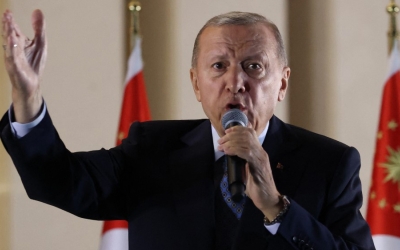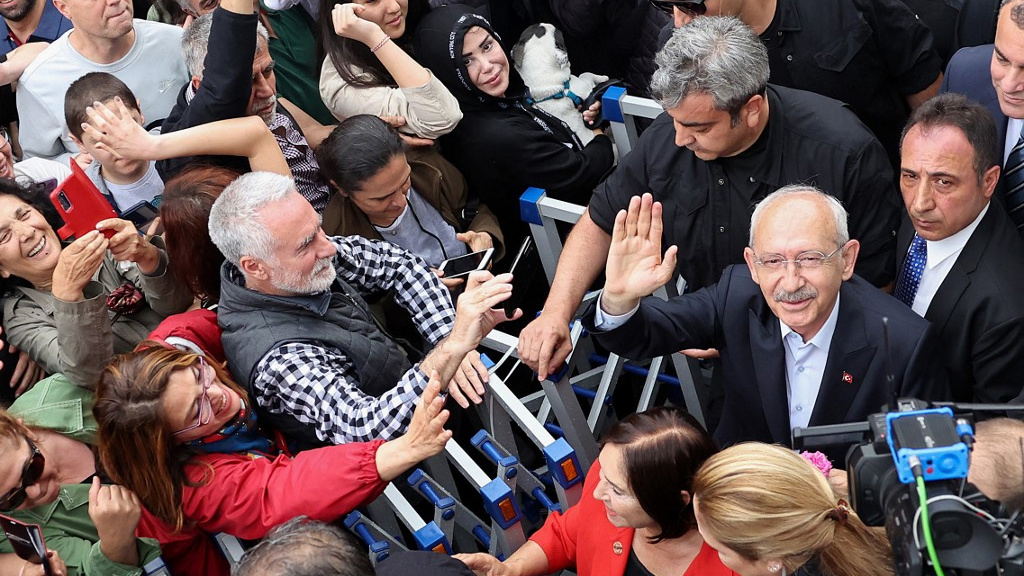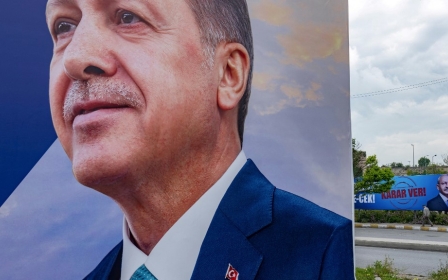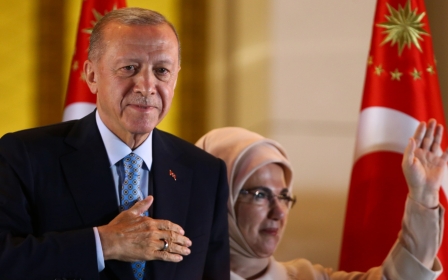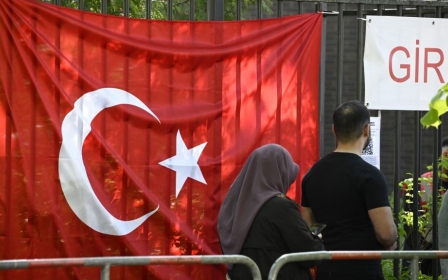Turkey elections: What does Erdogan's victory mean for the country's future?
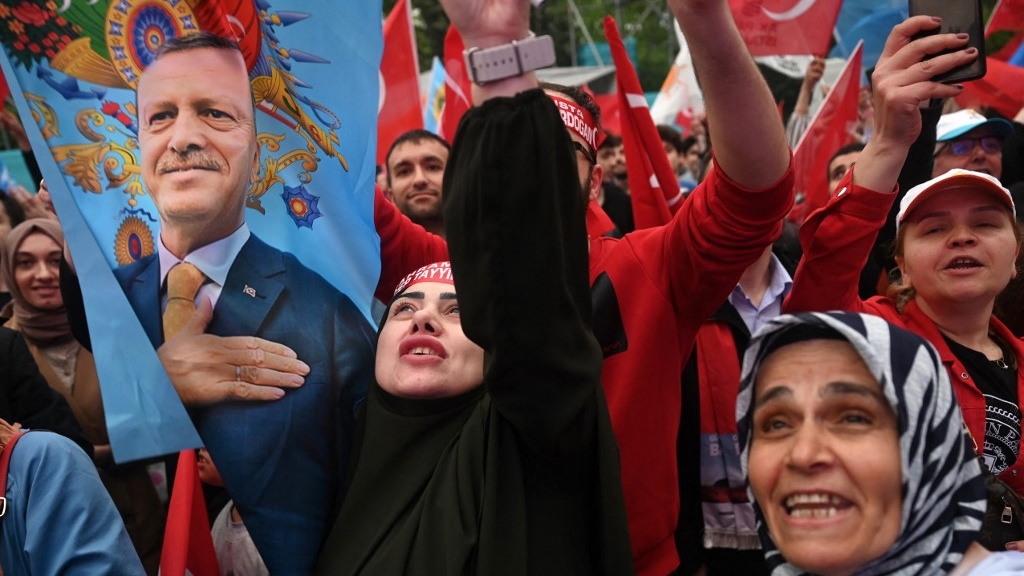
Sunday’s election in Turkey ended with yet another victory for President Recep Tayyip Erdogan. The outcome did not catch any close followers of Turkish politics by surprise.
Having received 49.5 percent in the first round on 14 May, the Turkish leader took advantage of the ruling People’s Alliance’s parliamentary majority to reach 52 percent quite comfortably.
As world leaders rushed to congratulate Erdogan on his electoral victory, the latest in a political career spanning more than three decades, it goes without saying that Sunday’s vote went down in Turkey’s political history as the last chapter in the epic of his invincibility.
Widely seen as a campaigning genius, the Turkish president, having won both the parliamentary and presidential elections, is expected to show strong leadership over the next five years. In recent days, he has presented various projects to the Turkish people, including new homes for earthquake survivors - and he declared on election night that the electoral marathon was not over.
Insisting that all of Turkey’s 85 million citizens were winners, Erdogan told his AK Party and supporters that their new goal was to win next year’s municipal elections.
New MEE newsletter: Jerusalem Dispatch
Sign up to get the latest insights and analysis on Israel-Palestine, alongside Turkey Unpacked and other MEE newsletters
That Kemal Kilicdaroglu, who formed a “grand coalition” featuring political parties with contradictory views (including the Turkish nationalist Victory Party and the Kurdish nationalist Green Left Party), received just 48 percent of the vote in Sunday’s election must be seen as an unmistakable defeat for the opposition.
Meanwhile, Erdogan’s ability to remain in power for five more years after governing for two decades and facing serious problems (like the recent earthquake and soaring housing prices in major cities) shows that the electorate simply doesn’t trust the opposition.
Splitting the vote
Having pledged to form a new government with seven vice presidents, Kilicdaroglu failed to portray himself as a politician who could address Turkey’s pressing problems. Furthermore, he embraced far-right arguments to directly target Syrian asylum seekers ahead of Sunday’s vote, to no avail.
Turkish nationalists supported the incumbent in largely conservative, mid-sized Anatolian cities, as secular-minded nationalists in big cities sided with his opponent. Kilicdaroglu’s deal with Umit Ozdag, the leader of the far-right Victory Party, ostensibly frustrated Kurdish voters.
Erdogan could resume regional normalisation, and view the election results as an opportunity to repair Turkey's relations with the West
Although the Green Left Party did everything in its power to get out the vote, the turnout rate and Kilicdaroglu’s popular support visibly decreased in predominantly Kurdish parts of the country. By contrast, Erdogan received slightly more votes in the second round.
In the end, the two candidates split voters who supported Sinan Ogan in the first round, and Erdogan won the race by approximately 2.3 million votes.
Yet while Erdogan won the presidential race by four percentage points, his opponent had a three-point lead in Istanbul and Ankara - which should alarm the Turkish president and his party. To win the 2024 municipal elections in both cities, Erdogan will have to focus on policies to reduce the cost of living in metropolitan districts. Another key issue will be to expedite the repatriation of Syrian asylum seekers.
Fully aware of both issues, Erdogan could be expected to kick off his party’s local election campaign this fall by unveiling new policies on these challenges.
New chapter
With the presidential election behind him, the Turkish president will presumably prioritise diplomacy with international trips upon forming his cabinet. In this new chapter, Erdogan could resume regional normalisation, and view the election results as an opportunity to repair Turkey’s relations with the West.
Indeed, the congratulatory phone call from US President Joe Biden to Erdogan on Monday could be seen as a first step towards giving fresh momentum to bilateral relations. Still, Washington demanding that Ankara approve Sweden’s Nato bid in exchange for the sale of F-16s to Turkey is no way to consolidate Ankara’s role within the alliance.
Meanwhile, the Turkish president announced on the campaign trail that he would pursue closer cooperation with Russia in many areas, and there is no reason to assume that he will give up on the existing policy of balancing between the West and Russia.
Turkey could make significant contributions to European security, which French President Emmanuel Macron invoked in his congratulatory message. To that end, there is a need to respect Turkey’s autonomous foreign policy and make mutual efforts to align interests.
People tend to believe that election results should serve as a message for politicians. Some might expect the outcome of Sunday’s election (which took place with the Turkish republic’s centennial around the corner) to blow winds of change across the country’s political arena. In this sense, the Turkish people are wondering what lessons the opposition may learn from their latest defeat against Erdogan.
At the same time, there has been speculation about internal strife within the Nation Alliance, which might dissolve, and about imminent resignations from the relevant political parties.
Opposition silence
My sense is that the Nation Alliance will remain intact and focus on next year’s municipal elections. Specifically, Kilicdaroglu’s lead over Erdogan in Istanbul and Ankara will encourage the opposition to stick together. No political party or politician would ultimately benefit from the alliance’s disintegration.
On election night, Kilicdaroglu appeared before cameras to insist that he would keep fighting, rejecting the possibility of his resignation over the election results. Unlike the main opposition leader, the Good Party’s Meral Aksener congratulated Erdogan on his election victory, suggesting that the opposition needs to take stock. With the Nation Alliance’s remaining members refusing to break their silence, the pro-opposition media promptly argued that the election wasn’t fair, suggesting that the Turkish leader had won a Pyrrhic victory.
As members of the opposition point to Turkey’s economic troubles, the Republican People’s Party (CHP) and the Good Party - the Nation Alliance’s senior members - will hold their party conventions. Since both party leaders (who did not run for parliament) tightly control their delegates, they are likely to get re-elected seamlessly. Accordingly, the calls for change are likely to give way to support for the current party chairs.
Unlike his counterparts in western democracies, Kilicdaroglu is unlikely to step down as CHP leader. Having lost several elections in his current role, he will likely make the case that he should remain in charge because he received 48 percent of the vote on Sunday - which presumably will convince more voters that the opposition hasn’t learned its lesson.
All in all, the opposition is likely to postpone the debate on its inability to develop a common vision for solving Turkey’s problems - and to communicate that plan with the help of an influential candidate - until after the municipal elections. Furthermore, opposition leaders will fiercely criticise Erdogan in an attempt to make their supporters forget about Sunday’s election while cracking down on dissent within the alliance and their respective parties.
And the likelihood that the opposition will once again embrace anti-refugee discourse, to which it resorted ahead of the presidential election’s second round, will continue to represent a serious challenge to Turkish democracy.
The views expressed in this article belong to the author and do not necessarily reflect the editorial policy of Middle East Eye.
Middle East Eye delivers independent and unrivalled coverage and analysis of the Middle East, North Africa and beyond. To learn more about republishing this content and the associated fees, please fill out this form. More about MEE can be found here.



